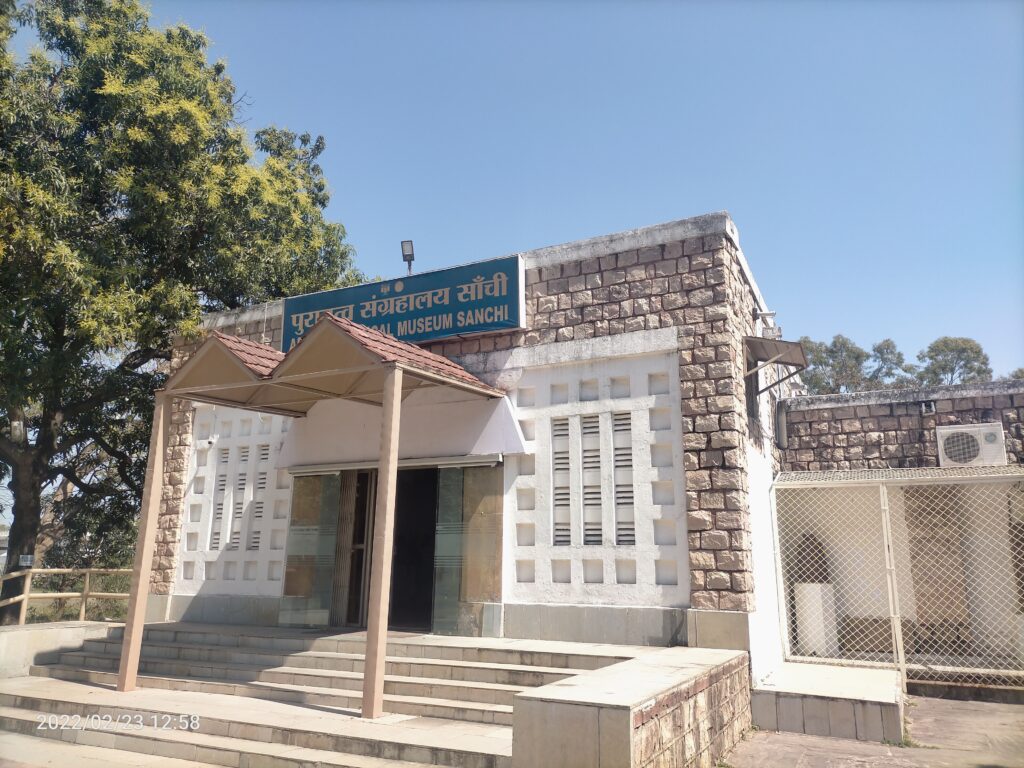
Credit: KAJAL
The archaeological museum, also known as the Sanchi Museum, is a historic site that was established in 1919 by Sir John Marshall. It’s a must-visit destination for anyone who is visiting the iconic Sanchi Stupa.
Discover the Origins of Sanchi Museum
The museum showcases sculptures found during the excavation in neighboring villages such as Gyaraspur, Gulgaon, Vishisha, and Murelhurd. The caving found in the excavation dates back approximately 2000 years. In 1919, the museum was situated atop the hill; it later relocated to a college building at the foothill of Sanchi Stupa, their current home, in 1966.
Unveiling the Architectural Marvel
The museum comprises a single-floor building that comprises a main hall, four galleries, a verandah, and an open courtyard, The artifacts form six different cultural periods: spanning from 300 BCE to 700 CE Gupta, Kushana, Satvahna, Maruyan, and Shunga are displayed for the visitors. The true highlight of the museum is the captivating Ashoka pillar with a bell-shaped design and an unfolded lotus; it provides support to four lions in a seating position.
Gallery 1: A Glimpse into Gupta and Medieval Art
The first gallery houses an impressive collection of large Buddhist sandstone sculptures that embody both Gupta and late medieval art traditions. Notable sculptures in this section include a meditating Buddha adorned with auspicious symbols on the toes and palms, a standing Buddha displaying the Varada mudra, and two magnificent images of Nagaraja.
The first gallery houses sculptures from the Gupta and late medieval art traditions. The two magnificent images of Nagaraja, Buddha meditation with auspicious symbols on the toes and palms, and Buddha displaying the Varada mudra looks beautiful
Gallery 2: From Miniatures to Iron Objects
Gallery 2 is divided into two sections. On the right side, the gallery showcases iron objects from the medieval period. While the section on the left side shows miniature sculptures dating back from the 3rd century BC to the 12th century AD. Among the noteworthy exhibits, you will find a Buddha meditating under the Pipal tree, “Yakshi” a sculpture of the female goddess, and a red sandstone Buddha from the place Mathura during the time period 4th century AD.
Plan Your Visit
The museum is open from 9 a.m. to 5 p.m., except on Fridays when it remains closed. Visitors should take note of the following entry fees: Rs. 30 for Indians and SAARC citizens, and Rs. 500 for foreigners.
If you want to live the captivating wonder and rich heritage of the past. you must delve into the fascinating world of the Sanchi Archaeological Museum. It promises an unforgettable experience of the historical artifacts it holds in its treasure.
